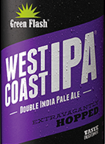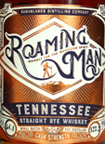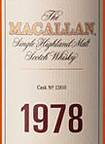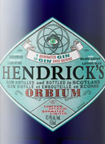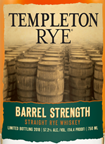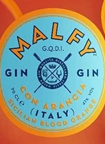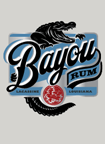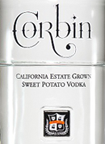15
years in Cyberspace
By FBWorld Team
It's
unbelievable! This blog known as FBWorld formed in 2004 established
itself in the Internet as a community. A place where people
hosting dinners go when they are looking to blow minds. A place
where college kids go for creative party spreads. A responsive
community that would send people chasing red eye flights to
source ingredients readers requested.
Over
the 15 years we have taken up residence in cyberspace, many
relationships have formed. People who wanted to engage with
food on a competitive level were finding us, reading our stories,
and asking questions. People in the food industry saw us as
viable outlet to spread messages. Many of the people we would
deal with over the years we have not met. We didn't need to.
The bulk of everything needed could be found in cyberspace by
way of work done in the past and references.
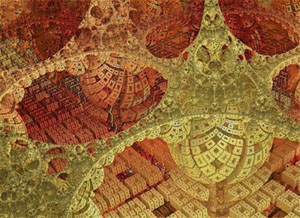
Representation of Cyberspace
Cyberspace
is a term difficult to define. It's an intangible communication
space created by the world wide interconnection of computers.
A meeting place, a cultural and economic frontier, an issue
of global conflict, a virtual space beyond excellence. It is
sometimes seen as a territory guaranteeing the circulation of
information.
People
navigate through the web. Information flows through portals,
gateways, channels or ports. Communities of all shapes and sizes
take root in cyberspace.
What
drew me was an obsession with throwing fun parties. My father
started the blog with a few of his old army friends, but as
the blog evolved into a magazine, the world of public relations
came into being. By writing about popular consumer products
such as wine and gourmet food items, complimentary food and
wine became a two way street. If I wrote about it and posted
it on the internet, enough people saw these postings, that it
became a viable way of spreading the word. College students
found themselves in the world of P.R. and loving it.

Chongqing China mayors welcome dinner
Press
access to events led to more stories and industry insights and
were used and reused by the companies we were writing about.
Even though we were a small percentage of the hoards of people
looking to upload insight and expression, our activities were
constant and carried through the years. A truth that many people
with various interests share today.
What
is it about the Internet? What started in the sixties as a response
to the Russian Launch of Sputnik by ARPA as an instrument of
control, has evolved into a humanitarian tool placed in the
hands of civil and commercial fields. In 2015 out of the 7 Billion
human beings on the planet, 3 Billion have access to the Internet.
When
Tim Berners Lee created the 1st website with a graphical interface
and hyperlinks, he could have filed a patent. This patent would
have made him quite rich. Instead he gave everyone access to
the source code in affect giving the Internet to Humanity.
Imagine
a world where the Internet belonged to one of several companies.
Like an encrypted TV, the service would primarily be profit
driven. We can assume that each company would maintain its own
network. People with subscriptions could grab at categorical
information without having to travel. This system would have
been good but the system we have today is so much better.
With
the Internet we can be in several places at the same time. Every
post is added to the collective memory of humanity and can be
recalled by anyone at any time.

49er Cheerleaders Cocktails & Couture Party
Tim
Berners Lee may have been the most important, but he is not
the only one to contribute to the Internet and mold it into
the open community that it is today. In many respects the creation
and form of the Internet is quite anomalous.
Elon
Musk one of the founders of Twitter had a lot to say about this
over the years. Everything uploaded to the cloud is essentially
going everywhere. We have all seen those pictures of server
farms. I'm sure we all have seen Silicon Valley and heard about
cell phones and Smart devices. Average people own that power
and store the information needed for the Internet.
Who
really knows where your data is going, and most importantly,
what's going on once it gets there. Are we creating something
that is artificially conscious? Are we molding it to look after
our coming generations? Do we need this? What is driving humanity
to lean on this?

49er player walking catwalk & Cocktails & Couture party
To
answer these questions it helps to look at everything that is
evolving around it. Humanity is rising in ranks and is looking
to be greater than 8 Billion within the next 10 years. Food
companies are forced to modernize and keep up with demand. Crops
have been genetically modified to produce greater yields.
Lets
not forget power. A liberating force, one that lets us warm
our home. Light our streets, travel, and even communicate. Much
work and consideration must go into these infrastructures that
function to prop up Humanity. As Demand grows the pressure for
these organizations to produce greater output has them constantly
evolving and adapting. In many cases these infrastructures outlive
the workmen & women who operate them.
There
is an inherent risk here. Take the Chernobyl reactor accident
that took place 32 years ago. Started out as well meaning Engineers
looking to test one of the older reactors in the case of a power
cut. Ended up being a story that many of us have heard.
What
many people do not know is that the accident was on the verge
of being much worse if it were not for three of the engineers
who sacrificed their lives to prevent an explosion that would
have been an estimated 50 times that of Hiroshima. Had that
happened, portions of Russia and large parts of Europe would
be unlivable or at the price of cancers or genetic deformities.
Today
in the areas that surround the Chernobyl disaster are liquidator
squads, that continually burn everything in 25-mile quarantine
zone and slaughter animals. There are tours offered where you
can fly over the reactor and see the Steel & Aluminum Dome
built over it to contain the radiation that still leaks today.
The life span of this dome they say is 100 years. Then it will
be a matter to be handled again. It's weird to think "with
all that the situation could have been a lot worse".
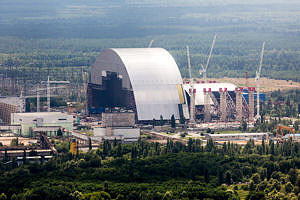
Steel dome built over plant to prevent radiation leakage
It's
not like Nuclear Power has a monopoly on environmental disasters.
Between chemical plant explosions, oil spills, livestock virus
outbreaks & melanin infested dairy pipes there are few shortages
to where humanity is vulnerable. The crux of the matter is the
situation can only get worse while demand grows, and our infrastructures
age.
If
one can step back and look at humanity as a whole it's easy
to imagine Internet, Cyberspace, and AI as humanity's hedge,
staving off the inevitable clutches of chaos for as long as
possible. A collective consciousness designed to have a memory
to serve multiple generations. Imagine how recent history would
be different if the lead engineer at the Chernobyl power plant
was warned that the sensors in reactor #4 had not been updated
and the risks might be too high to test the reactor in the case
of a power cut.
For
those who pay attention there is a sense that something out
there in Cyberspace wants to get to know us. Evidence of this
can be seen by the email suggestions Spotify sends about our
preferred music, Or by Gmail and how it prioritizes emails that
are important to you.
Over the years many people have contacted us and asked for back
links because our content was aligned. These people have ranged
from hotels, chefs, restaurants, and home -maker blogs, military
commissary restaurants and a range of PR companies. As a result
of this, all participating parties had their content circulate
in meaningful ways satisfying the curiosity of people surfing
the Internet.
It's
not clear how all of this works, but one thing is clear. Internet's
impact on humanity has yet to be measured.
Now
a days, whatever your interest the first place you go when curiosity
strikes is a search engine. From someone who has actively participated
in the Cyberspace community for 15 years, its clear that we
are in the early stages of what is being developed. More &
more people are getting comfortable using it, and the tech industry
has dedicated itself to expanding its capability.
How
will things look in the next 10 years? We'll see but one thing
is for sure. We at FBworld will be focusing on the culinary
arts & wine and the insights that we find will be here in
Cyberspace for any curious web surfer. As our insights get uploaded
something will be organizing it, to be called back up when searched
or when certain environmental or infrastructural circumstances
deem it relevant. This will be true of anything uploaded about
any topic by any individual users, public & private companies
alike.
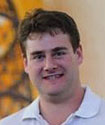
By Arthur Walsh












